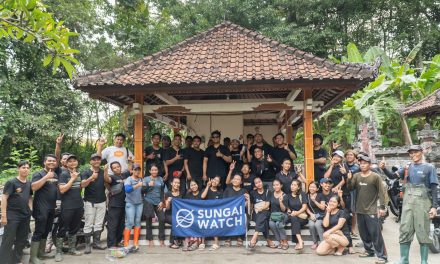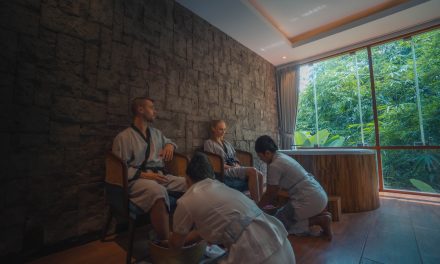Ah, Bali! The lush landscapes, the mystical culture, and the tantalizing aromas wafting through the air. For many, it’s a tropical paradise. But for the eco-conscious traveler (like me!), Bali is also a haven for sustainability and responsible living. As I embarked on my journey to explore this beautiful island, I stumbled upon a unique gem – eco-friendly cooking classes.
Why Eco-Friendly Cooking Classes?
Picture this: You’re immersed in the vibrant colors of a local market, purchasing fresh vegetables, aromatic spices, and fragrant herbs, all while learning about sustainable farming practices and the importance of organic ingredients. Eco-friendly cooking classes in Bali do just that; they combine culinary arts with a commitment to preserving the environment, all while giving you a genuine taste of Balinese culture.
A Personal Experience
During my travels in Bali, I signed up for a cooking class at a charming little venue nestled in the rice paddies near Ubud. On the morning of the class, I joined a small group of fellow food enthusiasts from around the globe. As we arrived, the air was filled with the sweet scent of lemongrass and ginger, instantly igniting my appetite and curiosity.
Our instructor, a local chef named Wayan, greeted us with a warm smile. He explained that he sourced all his ingredients from local farmers who practiced organic gardening. “If you want to be kind to the earth,” he said, “you should always know where your food comes from.” His words resonated with me, setting the tone for an unforgettable day.
The Market Visit
One of the highlights was our visit to the local market. Wayan guided us through the vibrant stalls, where the colors of fresh produce dazzled the eyes. “Choose what speaks to you,” he encouraged, making it feel like a culinary treasure hunt.
I remember picking up a bunch of vibrant eggplants and some fiery red chilies. Noticing my choices, Wayan enthusiastically informed me about their health benefits and traditional uses in Balinese cuisine. He shared stories of the farmers behind the produce, which made the food feel even more special.
Cooking with Consciousness
Back at the cooking venue — which was open-air with stunning views of the rice fields — we donned aprons and rolled up our sleeves. Wayan taught us how to make traditional Balinese dishes like *nasi goreng* (fried rice) using organic ingredients. As we chopped, stirred, and seasoned, we chatted about sustainable practices at home and shared tips on how to cook consciously.
One tip I picked up was how to create homemade vegetable stock to reduce waste. Instead of throwing away scraps, Wayan showed us how to save peels and trimmings to flavor our stocks, reinforcing the idea that every bite counts.
The Meal and Reflection
After an afternoon filled with laughter, teamwork, and some mistakes that turned into delicious experiments, we finally sat down to enjoy our meal. The satisfaction of eating dishes we had prepared ourselves, knowing they were made from organic ingredients, was unmatched.
As we savored the flavors of our creations while sipping on fresh coconut water, I couldn’t help but reflect on how cooking is not just about creating a meal; it’s about nurturing the earth and supporting local communities.
Practical Advice for Joining Eco-Friendly Cooking Classes
If you find yourself inspired to try eco-friendly cooking classes in Bali, here are some practical tips to enhance your experience:
1. Research and Choose Wisely
Look for classes that emphasize organic ingredients and local sourcing. A quick online search or a chat with locals can lead you to some hidden gems. Popular spots, like Casa Luna or Green Kitchen, are great starting points, but don’t hesitate to explore smaller, community-focused classes.
2. Immerse Yourself in Local Culture
Don’t just attend the class; engage with the surroundings. Talk to local farmers and ask about their practices. If the class offers a market tour, take your time to observe and learn about the ingredients.
3. Bring Your Curiosity
Ask questions! Whether it’s about the cooking techniques, the significance of the dishes, or the environmental impact of certain ingredients, showing genuine interest will enhance your learning experience.
4. Document Your Journey
Keep a journal of your experiences. This not only helps you remember the dishes you’ve learned but also the lessons about sustainability. You can even recreate these dishes at home, infusing them with your own flair while keeping eco-conscious practices in mind.
5. Continue the Eco-Friendly Journey at Home
Incorporate what you’ve learned into your daily cooking habits. Start composting, shop at local farmers’ markets, or even begin your own herb garden. Remember, every small step counts!
Conclusion
My experience with eco-friendly cooking classes in Bali was transformative and delicious, a delightful blend of learning, cooking, and connecting with the environment. As travelers who love to explore, we have the power to create a positive impact, not just on our tastebuds but on the planet. So, next time you plan a trip to Bali, make sure to include an eco-friendly cooking class. Not only will you leave with a full stomach and new cooking skills, but you’ll also carry home an invaluable lesson on sustainability — one chop, one stir, one meal at a time. Happy cooking!






